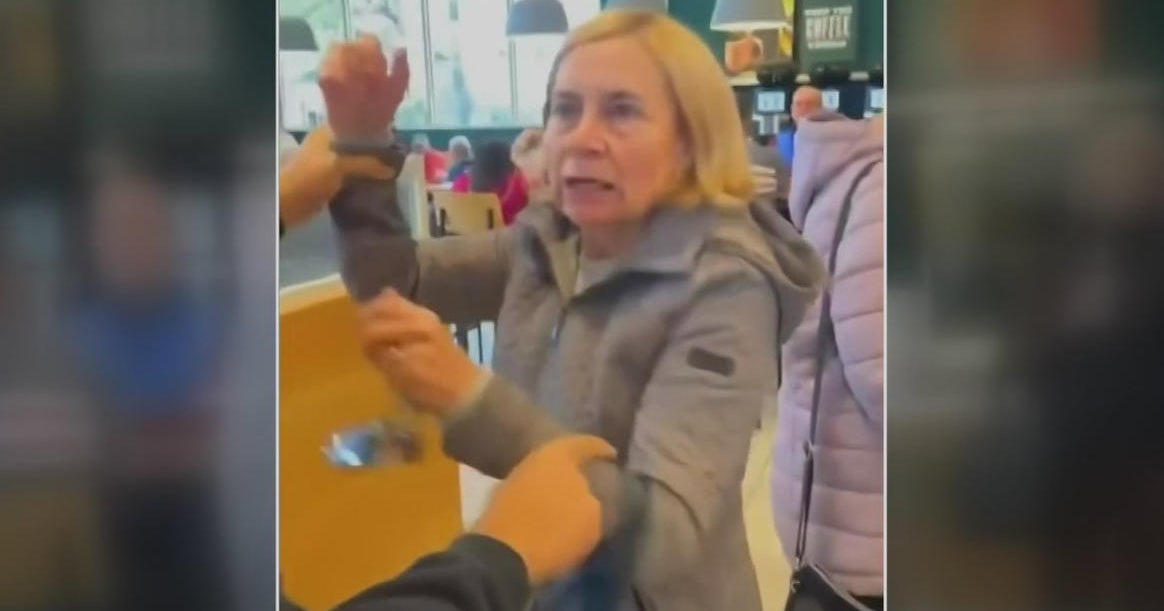Trump: 'Hundreds More' Would Have Died In Texas Church With Gun Laws Like Chicago's
CHICAGO (CBS) -- President Donald Trump took aim at one of his favorite targets on Tuesday – violent crime in Chicago – as he brushed aside renewed calls for stricter gun laws in the wake of the Texas church massacre.
During a press conference in South Korea, the president was asked if he would consider "extreme vetting" for gun purchases, similar to what he has demanded for foreigners entering the U.S.
Trump claimed such measures would not have stopped mass shootings like Sunday's attack at a church in Sutherland Springs, Texas, and actually could make them worse by preventing others from confronting the gunman.
"If you did what you're suggesting, there would have been no difference three days ago, and you might not have had that very brave person who happened to have a gun or a rifle in his truck go out and shoot him, and hit him, and neutralize him," Trump said. "I can only say this, if he didn't have a gun, instead of having 26 dead, you would have had hundreds more dead. So that's the way I feel about it. Not going to help."
The president was referring to Stephen Willeford, who ran out of his house barefoot, shot at Devin Kelley, and forced him to flee, after Kelley had killed 26 people and wounded 20 others at First Baptist Church.
Trump also pointed to Chicago as proof that stricter gun laws don't work.
"You look at the city with the strongest gun laws in our nation is Chicago, and Chicago is a disaster, a total disaster. Just remember, if this man didn't have a gun or a rifle, you'd be talking about a much worse situation in the great state of Texas," he said.
While Trump repeatedly has said Chicago has the toughest gun control laws in the U.S., the reality is the city's gun laws have been significantly weakened over the past decade.
In 2010, the U.S. Supreme Court struck down the city's longstanding ban on handgun ownership. Two years later, a federal appeals court also ruled the state's ban on carrying a concealed weapon unconstitutional, forcing Illinois to become the last state to legalized concealed carry.
City officials also have noted most guns used in crimes come from outside Chicago – with many coming from Indiana, Wisconsin, and Mississippi, where gun laws are much more lax.
Colleen Daley, who's with the Illinois Council Against Handgun Violence, says gun laws in California and New York are stronger.
"Rather than President Trump taking responsibility after Vegas, after Texas, he is pointing fingers," Mayor Rahm Emanuel said in response to Trump's remarks.
"Having a more comprehensive security blanket as it relates to guns is what the City of Chicago needs," Emanuel continued. "Our police officers are making progress -- but not progress fast enough, and we need stronger gun laws to get there."
Kelley was able to legally obtain the military-style rifle and two handguns he used in the attack, even though he had a previous conviction for domestic violence. The U.S. Air Force has acknowledged it failed to report Kelley's name to the National Criminal Information Center after he pleaded guilty to two counts of domestic violence.
Kelley was court martialed in 2012 after physically assaulting his then-wife and his stepson. That conviction should have stopped him from legally buying a gun, but his conviction was not entered in a federal database, allowing him to purchase the semiautomatic rifle used in the attack.



